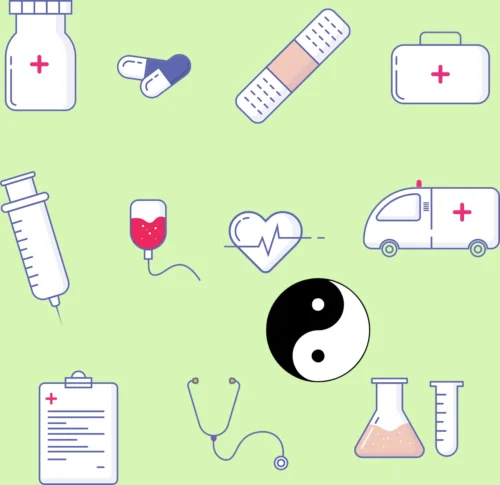This post may contain affiliate links and ads in which we may earn a small percentage of purchases.
A Very Common Sleep Disorder
So you’re having trouble going to sleep? Is it affecting your work? Your marriage? Your schooling? Insomnia refers to the inability to fall asleep or stay asleep. From my clinical perspective it can be a little tricky to treat, mainly because there has to be a fine understanding of the lifestyle habits or other factors involved. There are many causes for insomnia, including stress, anxiety, certain drugs such as asthma medications, gastrointestinal problems, and other conditions. However, your lifestyle plays a major role in management of this condition.

Acupuncture and Traditional Chinese Medicine has been shown to be very effective for the treatment of insomnia. In a systematic review of over 46 randomized control studies and over 3800 patients, acupuncture had been shown to be more effective than no treatment or sham acupuncture1. Acupuncture and herbal therapy had also been show to be more effective than just herbal therapy alone2. No serious side effects were reported from any of the studies.
Bio-medicine suggests that acupuncture can increase the amount of Gamma-Aminobutyric Acid (GABA), which leads to sleep quality. GABA is what’s known as a neurotransmitter inhibitor, meaning it stops the nerves cells from communicating.It’s actually of the the most common inhibitory neurotransmitters in the brain3.
A clear and beginner-friendly guide covering over 400 acupuncture points, ideal for students and learners.
 View Book
View Book
Traditional Chinese Medicine (TCM) and Insomnia
In TCM a common cause of of insomnia is due to disharmony of your heart qi/blood energy, which is also going to affect or be affected by the qi (chi) of another organ such as the spleen qi/blood energy (responsible for digestion and metabolizing), kidney yin energy (responsible for growth and longevity), or the liver blood energy (responsible for promoting harmonious flow of qi throughout the body, also deals with emotions). By looking at your tongue, and feeling your pulse were able to get a better idea of what systems may be out of order in your body.
In future posts I will go more into detail about Chinese Medicine theory on organs and meridians and how we view the human body.
A good resource for learning the basics of TCM is The Sacred Lotus, which has tons of information on Chinese Medicine theory, herbology, etc..

Other suggestions that may help with insomnia:
- Physical activity and exercise throughout the day – No excuses.
- Meditation in the morning and an hour before you get to bed, 15 minutes each session.
- Counting backwards from 100 while breathing in slow and with soft breath.
- Avoid eating spicy foods in the evening.
- Bad digestion and GI problems can contribute to insomnia, so eating the right foods for your body type is important.
- Try drinking a small cup of chamomile in the evening.
Now go get some rest!
Sources:
1, 2 Cao H, Pan X, Li H, Liu J. Acupuncture for Treatment of Insomnia: A Systematic Review of Randomized Controlled Trials. J Altern Complement Med. 2009 November; 15(11): 1171–1186.
3. Anatomy and Phyisology
– National Heart Lung and Blood Institute. 2011. What Is Insomnia?. Retrieved March 13, 2012 from http://www.nhlbi.nih.gov/health/health-topics/topics/inso/
– Chinese Acupuncture and Moxibution, Cheng Xinnong, 1999
Medical Disclaimer: This article is for informational and educational purposes only and is not a substitute for professional medical advice, diagnosis, or treatment. Always consult a qualified healthcare provider with any questions about a medical condition or treatment.




Nice tips being a freelancer mostly I give time staying online on night because of timezone issue with clients.Now I literally face mental and physiologic problem shortage of sleep and relax.But I feel with reading your post I need to concern with any acupuncture specialist.